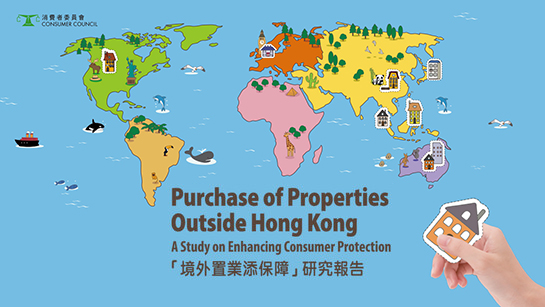 Supplementary Information on Surveys
Supplementary Information on Surveys
Overview
Hong Kong’s ageing population, increasing longevity and growing prevalence of chronic diseases are driving demand for healthcare services. With an increasing call for convenient, affordable and quality healthcare around the world, telehealth has emerged as a rising trend leveraging technological advancements to enhance public access to healthcare services.
To call for integration of telehealth services into health systems and inclusive governance in the face of growing demand for healthcare services, the Consumer Council (“the Council”) conducted a study titled “Enhancing Governance in Telehealth: Fostering Consumer Trust and Innovation” (“the Study”) to understand the perception and experience of consumers and medical practitioners and Chinese medicine practitioners (“CMPs”) (collectively referred to as MPs) on telehealth services; to review trade practices and terms and conditions of services of the telehealth service providers with an aim to identify potential issues; and to provide recommendations for promoting the sustainable development of telehealth in Hong Kong.
Key Findings
From October 2022 to June 2025, the Council carried out the study with a primary focus on teleconsultation in the private sector, under the broader umbrella of telehealth application. Among the 13 healthcare professions who are required to undergo statutory registration in order to practise in Hong Kong, this Study encompassed medical practitioners and CMPs, only for whom guidelines on telemedicine are currently available.
The Study adopted a mixed-method approach comprised (i) a consumer survey targeting 400 users and 440 non-users; (ii) a MP survey with 833 MPs; (iii) a trader survey targeting 14 telehealth service providers; (iv) review of official websites, promotional materials and mobile applications or phone/online enquiries, targeting 19 telehealth service providers; (v) pre- and post-Study engagements with stakeholders including Government and public bodies, healthcare facilities and MPs, patient organisation, insurers and traders; (vi) analysis of the Council’s complaint cases; and (vii) review of regulatory regimes/measures in Hong Kong and 5 other selected markets.
The Council identified the following issues from the above research methods:
Fundamental Concerns:
- Fragmented and inadequate governance framework
Unclear liability between parties involved during the provision of telehealth services
Uncertainty in insurance coverage of telehealth services
Trade Practices Issues:
Non-transparent and unclear information provision
Lack of consumer choices with limited MPs and consultation timeslots
Insufficient operational support
Privacy and security concerns over telehealth platforms or teleconferencing tools
Recommendations
With an overarching aim to empower consumers and strengthen safeguards in the use of telehealth services through enhanced governance and market transparency, the Council puts forward 5 recommendations:
1. Strengthen guidance for appropriate professions providing telehealth services
2. Enhance governance to cover telehealth platforms and communication tools
3. Promote market transparency on telehealth
4. Improve the usability of telehealth services
5. Educate and support consumers to safely use telehealth services
Conclusion
Through this Study, the Council hopes to raise awareness on the issues and opportunities of telehealth, as well as the enhancements necessary to fully realise its potential for public good. The Council advocates the Government to continue its reform on enhancing the quality and efficiency of healthcare, to also better utilise telehealth and prepare for future advancements step by step in the years to come.




 Press Release (English)
Press Release (English) 






